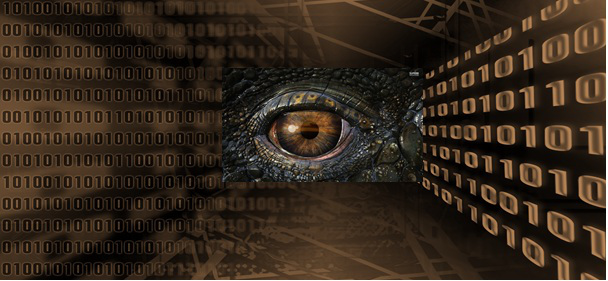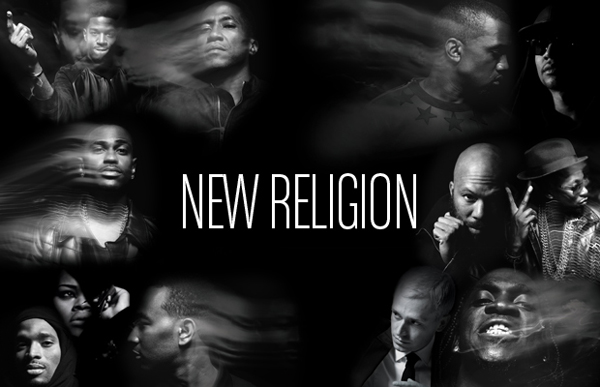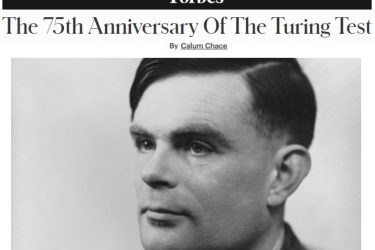Week Three: Extreme Algocracy
In the first third of Homo Deus, Harari claims that humanity has more-or-less conquered its traditional enemies of famine, plague and war, and has moved on to chasing immortality, happiness and divinity. He also urged us all to become vegetarian, if only to make us less contemptible in the eyes of a future superintelligence.
In the second third of the book he offers a surprisingly cursory review of the two singularities – the economic and the technological. He seems to assume that most people already know about them, or at least won’t need much persuading to accept them.
Extreme algocracy

So finally we arrive at the main event, in which Harari predicts the dissolution of not only humanism, but of the whole notion of individual human beings. “The new technologies of the twenty-first century may thus reverse the humanist revolution, stripping humans of their authority, and empowering non-human algorithms instead … Once Google, Facebook and other algorithms become all-knowing oracles, they may well evolve into agents and finally into sovereigns.” As a consequence, “humans will no longer be autonomous entities directed by the stories their narrating self invents. Instead, they will be integral parts of a huge global network.” This seems to be an extreme version of an idea called algocracy, in which humans are governed by algorithms. The philosopher John Danaher is doing interesting work on this.
As an example of how extreme algocracy could come about, Harari asks you to “suppose my narrating self makes a New Year resolution to start a diet and go to the gym every day. A week later, when it is time to go to the gym, the experiencing self asks Cortana to turn on the TV and order pizza. What should Cortana do?” Harari thinks Cortana (or Siri, or whatever they are called then) will know us better than we do and will make wiser choices than we would in almost all circumstances. We will have no sensible option other than to hand over almost all decision-making to them.
Two new religions
Given his religious turn of mind, it is no surprise that Harari sees this extreme algocracy as leading to the birth of not one, but two new religions. “The most interesting place in the world from a religious perspective is not the Islamic State or the Bible Belt, but Silicon Valley.” Algocracy, he thinks, will generate two new “techno-religions … techno-humanism and data religion”, or “Dataism”.

Techno-humanism agrees that Homo Sapiens as we know it has run its historical course and will no longer be relevant in the future, but concludes that we should therefore use technology in order to create Homo Deus – a much superior human model.” Harari thinks that techno-humanism is incoherent because if you can always improve yourself then you are no longer an independent agent: “Once people could design and redesign their will, we could no longer see it as the ultimate source of all meaning and authority. For no matter what our will says, we can always make it say something else.” “What”, he asks, “will happen to society, politics and daily life when non-conscious but highly intelligent algorithms know us better than we know ourselves?”
Dataism trumps Techno-humanism
Hence a bolder techno-religion seeks to sever the humanist umbilical cord altogether. … The most interesting emerging religion is Dataism, which venerates neither gods nor man – it worships data. … According to Dataism, King Lear and the flu virus are just two patterns of data flow that can be analysed using the same basic concepts and tools. … Humans are merely tools for creating the Internet-of-All-Things, which may eventually spread out from planet Earth to cover the whole galaxy and even the whole universe. This cosmic data-processing system would be like God. It will be everywhere and will control everything, and humans are destined to merge into it.”
Dataism isn’t limited to idle prophecies. Like every religion, it has its practical commandments. First and foremost, a Dataist ought to maximise data flow by connecting to more and more media, and producing and consuming more and more information.” So people who record every aspect of their lives on Facebook and Twitter are not clogging up the airwaves with junk after all; they are simply budding Dataists.
I am un-persuaded by the idea that mere data, undifferentiated by anything beyond quantity and complexity could become sovereign on this planet and throughout the universe. I think Harari has missed an interesting opportunity – if he replaced the notion of data with the notion of consciousness, I think he might be onto something important. It would not be the first time that a thinker proposed that mankind’s destiny (a religiously loaded word which he would perhaps approve) is to merge its individual minds into a single consciousness and spread it throughout the cosmos, but it might be the first time that a genuinely mainstream book did so.

In any case, Harari deserves great credit for staring directly at the massive transformations heading our way, and following his intuitions to their logical conclusions.
~
A rather plodding first half may deter some fans of “Sapiens” (Harari’s previous book), but it is worth persevering for the extreme views about algocracy which he introduces in the final third.



